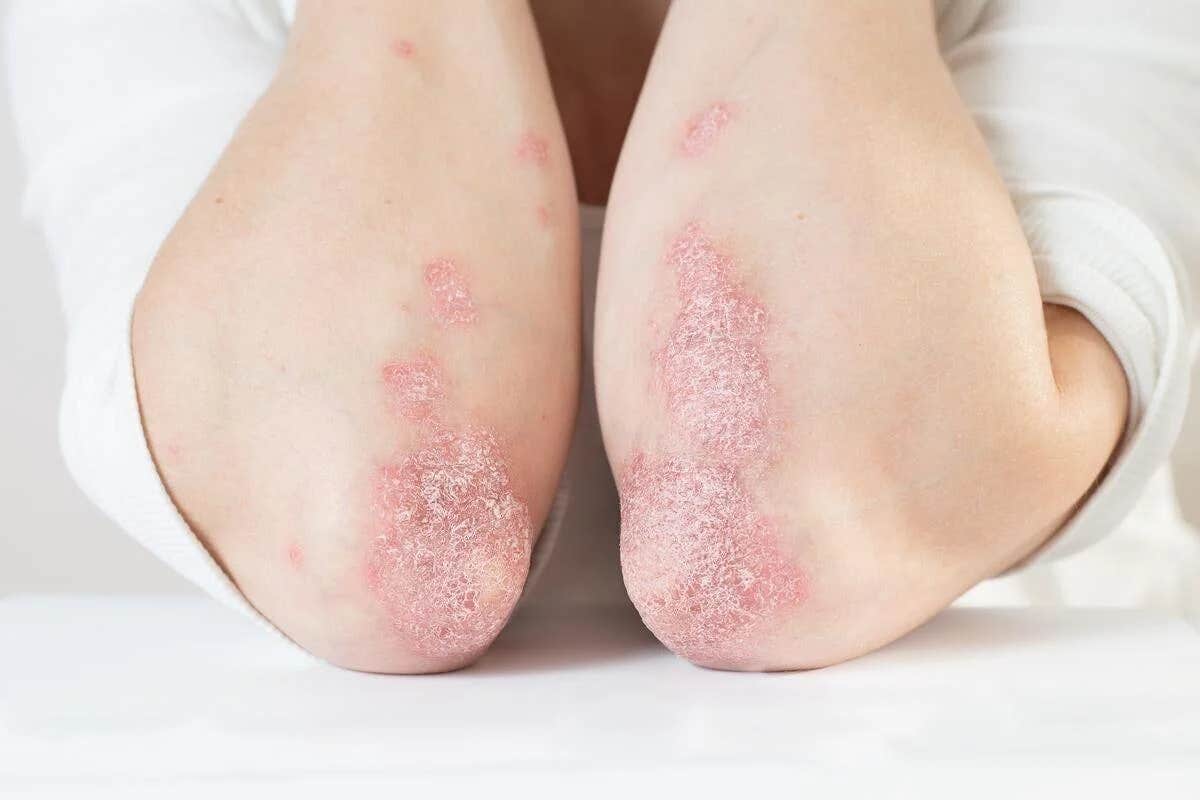Eating ultraprocessed foods linked to psoriasis development
New research links ultra-processed foods to psoriasis symptoms. Learn how diet may impact inflammation and what this means for managing psoriasis.

A French study finds a significant link between ultra-processed food consumption and active psoriasis. (CREDIT: CC BY-SA 4.0)
A growing body of research suggests that ultra-processed foods (UPFs) may play a significant role in triggering inflammatory diseases, including psoriasis.
While previous studies have linked UPFs to conditions like obesity, type 2 diabetes, cancer, and heart disease, new research from France highlights a connection between these foods and active psoriasis, a chronic autoimmune disease.
Psoriasis affects millions worldwide, causing red, pink, or purple patches of scaly, itchy skin due to an overactive immune system. A study published recently analyzed the relationship between UPF consumption and psoriasis symptoms, shedding light on how diet may influence this condition.
The study utilized data from the Nutri-Net-Santé cohort, a large-scale research project that tracked dietary habits and health outcomes in over 18,500 individuals aged 15 and older. Among them, more than 1,800 participants had been diagnosed with psoriasis, and over 800 were experiencing active symptoms during the study period between 2021 and 2022.
Researchers divided participants into three groups based on their UPF intake: minimum, moderate, and maximum. They found that those in the highest UPF consumption group were more likely to have active psoriasis. This association held even after accounting for factors such as age, sex, body weight, smoking, alcohol consumption, and physical activity.
The study’s findings suggest that UPFs might have a pro-inflammatory effect, potentially fueling chronic immune activation that exacerbates psoriasis symptoms. However, the research stops short of confirming a direct causal relationship.
Professor Wendy Hall from the Department of Nutritional Sciences at King’s College London emphasized that the study, while valuable, has limitations. "This type of study can only tell us if diet is associated with a health outcome, not the direction of the effect," she explained. For instance, having active psoriasis might influence mental health and lead to poorer dietary choices, rather than the other way around.
Hall noted that such observational studies provide insights but are insufficient for forming concrete dietary guidelines without further controlled trials. She also highlighted that the methodology used to classify foods as UPF might lack precision, referencing the NOVA classification system.
Related Stories
Developed by Brazilian scientists, the NOVA system defines UPFs as industrially produced foods with artificial ingredients, such as emulsifiers, which are absent in traditional home cooking.
What Makes UPFs Problematic?
The majority of foods classified as UPFs are high in sugar, fat, salt, and calories, while being low in essential nutrients, fiber, and bioactive compounds. These dietary patterns are associated with systemic inflammation, a common factor in many chronic diseases, including psoriasis. However, Hall described UPF as a "vague proxy" for poor nutritional quality, arguing that focusing on specific food groups or dietary patterns might provide more actionable advice.
Hall pointed to previous research showing that adherence to a Mediterranean diet—rich in fruits, vegetables, whole grains, unsaturated fats, nuts, and oily fish—correlates with lower inflammation and reduced risk of psoriasis. This dietary pattern contrasts sharply with the typical nutrient-poor profile of UPFs.
Implications for Psoriasis Management
For individuals with psoriasis, this study underscores the potential impact of diet on symptom management. While the findings are not definitive, they suggest that reducing UPF intake could be a simple step toward minimizing inflammation. However, translating these insights into practical advice remains challenging.
"It would be more helpful to have observational analyses based on food groups and precisely defined dietary patterns that are easy to communicate to patients and achievable for most people," Hall noted.
For now, people with psoriasis might consider prioritizing whole, minimally processed foods, including plenty of fruits, vegetables, and healthy fats, while limiting high-sugar and high-fat UPFs.
The study authors emphasized the need for larger, more robust studies to confirm their findings and explore the mechanisms by which UPFs may contribute to inflammatory diseases. Randomized controlled trials could help establish whether UPFs directly cause psoriasis flares or whether other factors, such as overall diet quality, play a more significant role.
Broader Implications for Public Health
This research adds to a growing body of evidence about the health risks associated with UPFs. As the global consumption of these foods rises, understanding their impact on chronic diseases becomes increasingly urgent.
Public health strategies aimed at reducing UPF intake and promoting whole-food diets could benefit not just individuals with psoriasis but also those at risk for other inflammatory conditions.
For now, the takeaway is clear: while diet alone may not cure psoriasis, it likely plays a role in its management. Prioritizing nutrient-dense, anti-inflammatory foods could be a valuable part of a broader strategy to improve quality of life.
Note: Materials provided above by The Brighter Side of News. Content may be edited for style and length.
Like these kind of feel good stories? Get The Brighter Side of News' newsletter.
Rebecca Shavit
Science & Technology Journalist | Innovation Storyteller
Based in Los Angeles, Rebecca Shavit is a dedicated science and technology journalist who writes for The Brighter Side of News, an online publication committed to highlighting positive and transformative stories from around the world. With a passion for uncovering groundbreaking discoveries and innovations, she brings to light the scientific advancements shaping a better future. Her reporting spans a wide range of topics, from cutting-edge medical breakthroughs and artificial intelligence to green technology and space exploration. With a keen ability to translate complex concepts into engaging and accessible stories, she makes science and innovation relatable to a broad audience.



